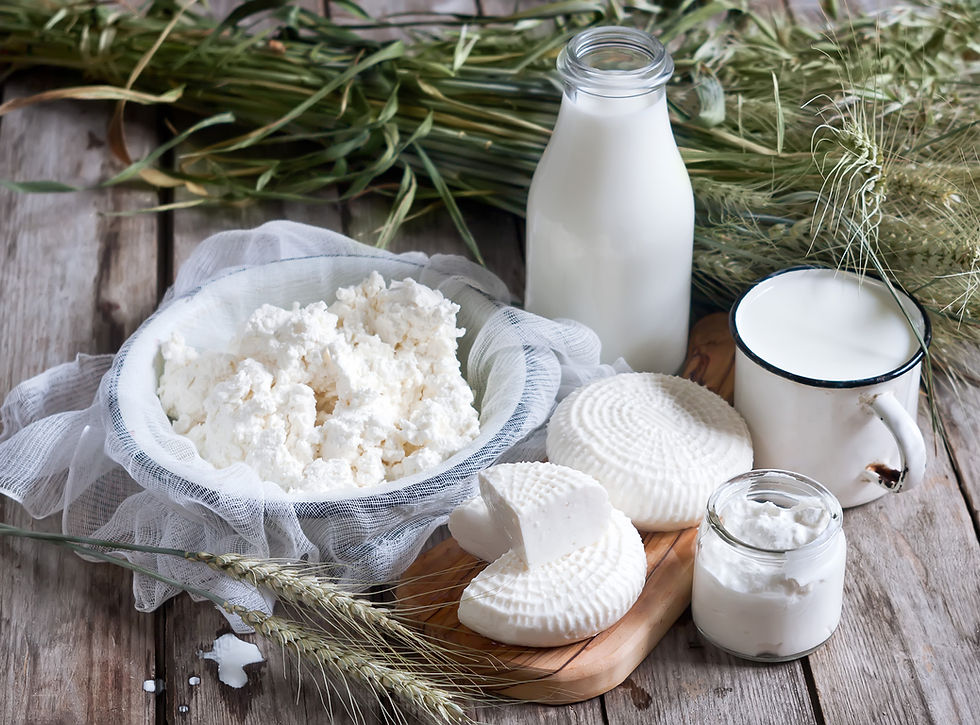Can you Cure Histamine Intolerance?
- Catherine & Rosie

- Jun 2, 2025
- 3 min read
Updated: Jun 9, 2025
Histamine intolerance is increasingly recognised as a real condition that impacts many people daily. Those affected often suffer from a range of unpleasant symptoms, which can significantly disrupt their lives. While some may claim they have found a "cure," the truth is more complex and individual.
Why Does Histamine Intolerance Happen?
Histamine intolerance occurs when there is a dysregulation of histamine in the body. Histamine is a chemical that plays vital roles in immune responses, digestion, and brain function. Normally, enzymes like diamine oxidase (DAO) and histamine N-methyltransferase (HNMT) break down histamine. When one or both of these enzymes do not function properly, histamine builds up and leads to symptoms like headaches, digestive difficulties, and skin rashes.
Factors that can contribute to histamine intolerance include genetics, gut health, and diet. Consuming high-histamine foods, like fermented items, aged cheeses, and certain alcoholic beverages like red wine, can worsen symptoms but it is often a challenge to identify this initially as symptoms may appear inconsistent.
Can You Cure it?
The idea of curing histamine intolerance is debated among healthcare professionals. Many agree that management—rather than a full cure—is a more realistic approach. Underlying issues like chronic health problems, enzyme deficiencies, or poor gut health often contribute to histamine intolerance and can be challenging to fully reverse.
The link between DAO deficiency and Histamine Intolerance is also becoming better documented. While lifestyle changes can significantly improve symptoms, they may not completely eliminate the intolerance. People often have to adapt to these changes as part of their routine, making the notion of a "cure" seem improbable.
Why Do Some People Claim That It Can Be Cured?
Claims of a cure frequently emerge from personal experiences or alternative health practices. Some individuals report relief from symptoms when making dietary changes, taking supplements, or following detox programs. These stories can create the impression that a complete cure is possible.
However, it is important to recognise that individual testimonials often lack scientific backing. What works for one person may not yield the same results for another, highlighting the need for an individual approach when managing histamine intolerance.
Can It Go Away or Get Better?
For some, histamine intolerance may improve with time, particularly when addressing underlying issues, such as gut dysbiosis. For example, individuals who successfully treated their gut health often report symptom relief within weeks. When contributing factors are minimised, symptoms can appear to improve significantly.
That said, it is important to remain cautious. Many individuals experience histamine intolerance as a chronic condition with varying symptoms. Factors such as stress, hormonal fluctuations, and dietary mistakes can aggravate symptoms, so it is important to be aware of your triggers and remain attentive to your body's signals.
Where Can I Start?
If you suspect you have histamine intolerance, consider starting your journey with these steps:
Consult a Healthcare Professional: Before altering your diet or lifestyle, seek guidance from a doctor or dietitian who understands histamine intolerance. They can provide advise and help you develop a personalised plan.
Keep a Food Diary: Tracking what you eat and any related symptoms can help pinpoint high-histamine foods and your body’s reactions.
Experiment with a Low Histamine Diet: Gradually phase out high-histamine foods for several weeks while monitoring changes in symptoms. This process may help identify your personal tolerance levels but is best carried out safely under the advice of a Dietitian.
Focus on Whole Foods: Emphasise your diet on lower histamine plant points to help to diversify your gut microbiome
Educate Yourself: Knowledge is empowering. Learn about histamine intolerance from reputable sources and consider joining communities dedicated to managing this condition.
In summary, while histamine intolerance may not be easily cured, gaining a deeper understanding of its causes and implementing effective management techniques can lead to better quality of life. By making informed decisions and committing to a low Histamine Lifestyle, many individuals can find relief and live healthier, more balanced lives.
Known as the Histamine Expert Dietitians, Rosie and Catherine are registered Dietitians who help clients overcome the symptoms of Histamine Intolerance and DAO deficiency by using their signature Histamine Rebalance Programme.




Comments